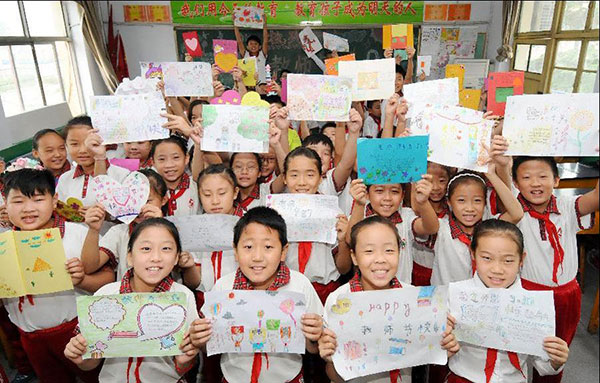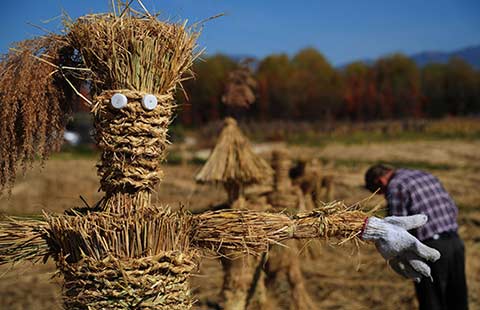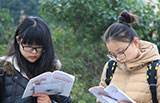Apples for teacher? Ministry concerned about school bribery
(Xinhua) Updated: 2015-12-08 13:18
 |
|
Pupils display self-made cards for teachers before Chinese Teachers' Day at Dongguan Yifu Elementary School in Shijiazhuang, capital of North China's Hebei province, Sept 9, 2015. China's Teachers' Day falls on Sept 10 every year. [Photo / Xinhua] |
BEIJING - Teachers taking backhanders and profiting from after-school lessons is a barely concealed secret in China, and it's got so close to the surface that education authorities are cracking down.
While ambitious parents like to give teachers gifts to buy extra attention for their children, others hate the practice and accuse teachers of greed.
According to a report by the Ministry of Education on Monday, China's 31 provincial-level regions have all come up with rules on teachers' conduct and more than 95 percent of schools responded to a survey that they weigh morality heavily in their staff evaluation.
Teachers are banned from demanding gifts and money from parents, receiving money for extra lessons, forcing students to buy additional learning materials or introducing them to other education institutions.
While it's a chicken-and-egg question as to which side first sowed the bribery seed, many teachers in elementary and middle schools have long held extra lessons unpaid to prepare their students for college entrance exams.
Meanwhile, gifting is reportedly more frequent in prestigious schools and mostly concerns Chinese, English and math, the three primary subjects for the exams, which are considered make-or-break in China.
"Many parents strongly urge us to hold extra lessons for their children after school, but I also want to make some money myself," one Beijing teacher told Xinhua on condition of anonymity.
In some rural areas where official supervision is slack, parents have to routinely pay elementary school teachers just to have their children seated to the front of a classroom so they can see and hear more clearly.
In September, the Shanghai Academy of Social Sciences released results of a survey of 3,000 parents and 15,000 students showing that 7.4 percent of the former and 10 percent of the latter held negative views on the morality of teachers in elementary and middle schools.
Ten percent of the parents admitted they had sent gifts to teachers.
"There are often students around when parents offer gifts to us. It can be really embarrassing. And sometimes, parents just won't allow us to refuse, putting our teachers under huge pressure," said a vice principal of an elementary school in the eastern city of Nanjing.
Jin Zhongming, a professor at East China Normal University, said regulating teachers must be done at the same time as protecting their interests.
"On one hand, a scientific system should be set up to certificate and dismiss teachers. On the other, we should take more steps to make them feel happier and respected, so they voluntarily follow rules and teach better," Jin said.
The Ministry of Education is planning a campaign to educate teachers on moral values and will punish teachers who break the rules, said senior ministry official Xu Tao.
- Beijing issues first red alert for heavy air pollution
- Chinese 'ambassadors' shine spotlight on bloody ivory trade
- Database set up to combat fake Living Buddhas
- University calls halt to surgery on animals amid abuse concerns
- Nobel laureate calls for united global malaria fight
- Sick panda rescued in China
- Drone makers turning to farmland
- Mt Qomolangma gets warmer: report
- Bye-bye blue: More smog settling in
- Former tycoon dies at 44 in prison






